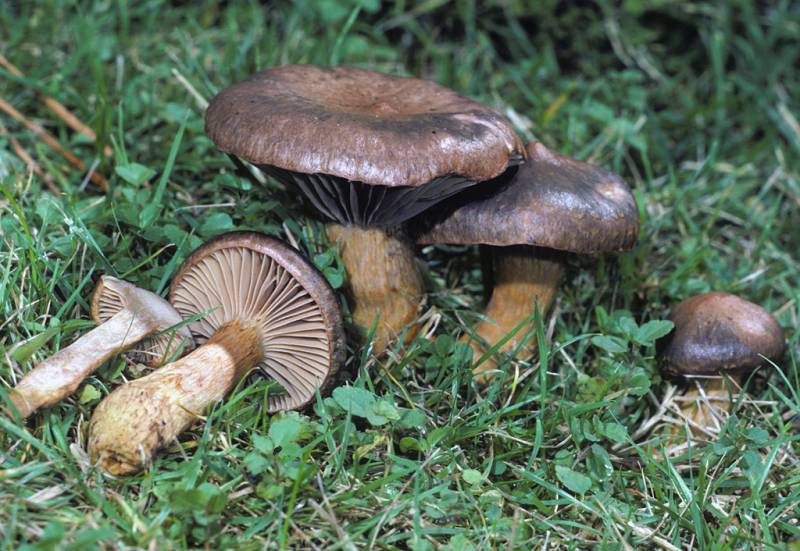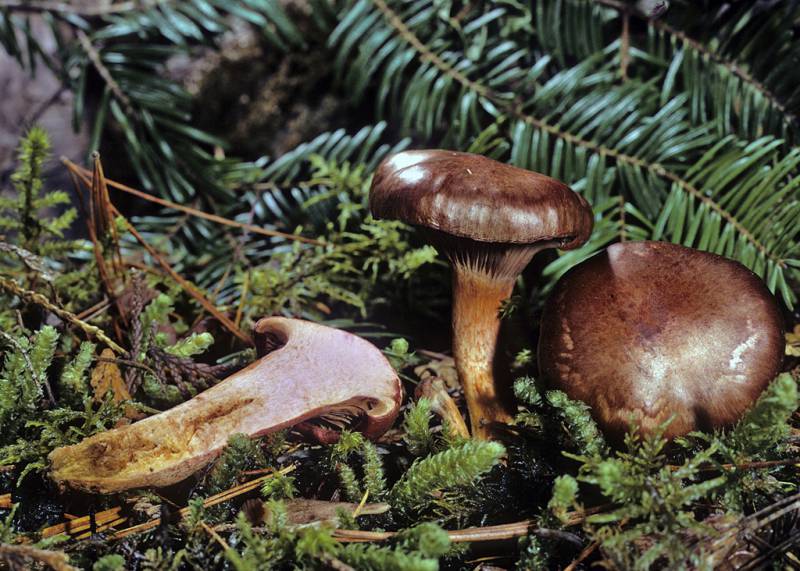Conservation Status: Not of concern
Traditionally, Chroogompus vinicolor, C. rutilus, and C. ochraceus have comprise the pine spikes, a common fungal element of pine forests throughout North America. They are quite similar to each other, having ochraceous to wine-red viscid caps that are convex or umbonate in age. Chroogomphus vinicolor has been differentiated from the other two species primarily on the basis of having thick walled (up to 5-75 um at widest part) cystidia, whereas the other two species have been separated on the basis of color, with C. ochraceous characterized by brighter colors (yellowish orange to ochraceous) than C. rutilus (grayish, ochraceous, vinaceous to dingy vinaceous brown).
Molecular analyses by Orson Miller and Cathy Aime support recognition of the three species but suggest that C. rutilus occurs only in Europe, C. ochraceus only in North America, and that all three species vary too widely in color for it to be useful in species determination. Thus our PNW pine spikes belong to C. vinicolor and C. ochraceus. However, deciding to which species a particular collection belongs can be problematic, a cystidia often are intermediate in thickness, perhaps as a result of thickening that occurs as the mushroom ages.
Sources: Trudell, Steve and Joe Ammirati. Mushrooms of the Pacific Northwest. Portland, Timber Press, Inc. 2009.
PNW Herbaria: Specimen records of Chroogomphus rutilus in the Consortium of Pacific Northwest Herbaria database
CalPhotos: Chroogomphus rutilus photos





